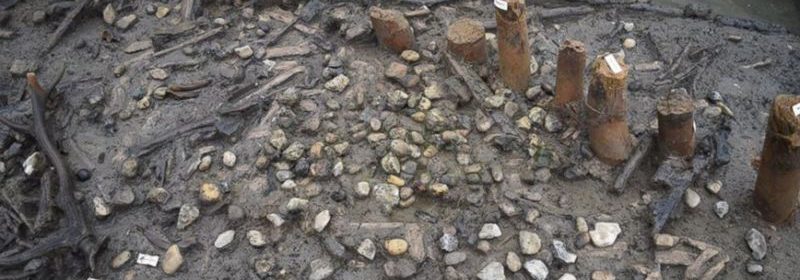A 3000-Year-Old Settlement Is Being Dubbed ‘Britain’s Pompeii’

A 3000-Year-Old Settlement Is Being Dubbed ‘Britain’s Pompeii’
Archaeologists have discovered a surprisingly well-preserved 3,000-year-old community near to Peterborough, England.
The Cambridge Archeological Unit excavation at Must Farms has uncovered a range of textiles, pottery and tools that reveal new insights into the lives of our ancestors.
According to the Cambridge archaeological unit, the community at Must Farms dates from the end of Bronze Age (1000-800 BC).
The ancient settlement is especially unique in that it was apparently overtaken by a fire, causing much of the settlement to collapse into the river at which it was built.

The sudden destruction, and then subsequent preservation in the river’s non-porous silt, caused many of the artifacts to be preserved incredibly well, archaeologist wrote on their online diary, documenting the findings.
The destruction and preservation have caused many to compare the site to Pompeii, the ancient Roman city preserved in volcanic ash after the eruption of Mt. Vesuvius.
“We think those living in the settlement were forced to leave everything behind,” Kasia Gdaniec, senior archaeologist of Cambridgeshire County Council, wrote on their website. “An extraordinarily rich range of goods and objects are present in the river deposits.”
Among the findings are pottery that is nearly intact, wheels, axes and decorative beads.
Although the settlement was first discovered in 1999, and a few small excavations took place in 2004 and 2006, the Cambridge Archaeological Unit’s dig is the largest and first thorough excavation done at Must Farms. Their excavation began a little less than a year ago and is nearing completed.